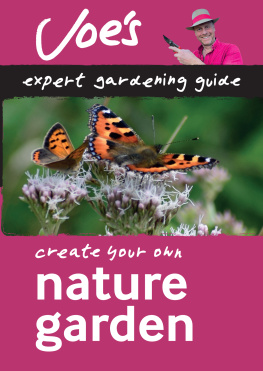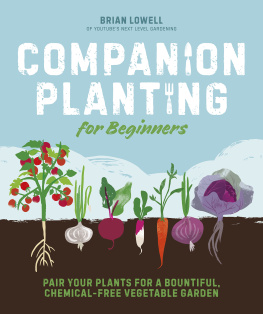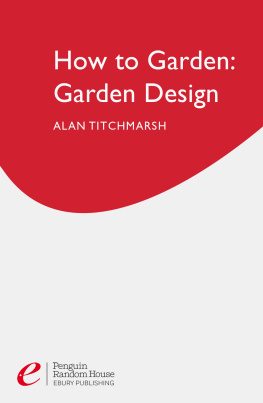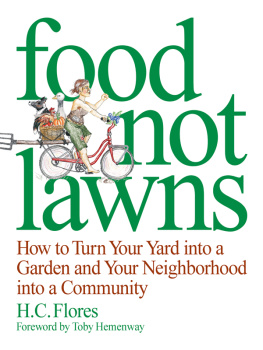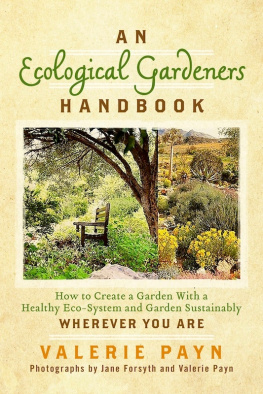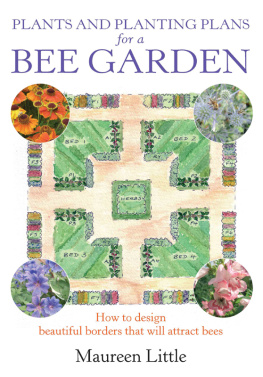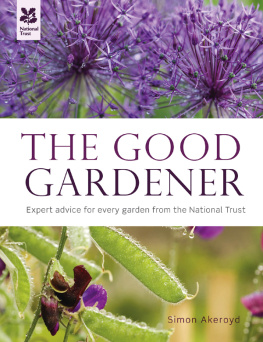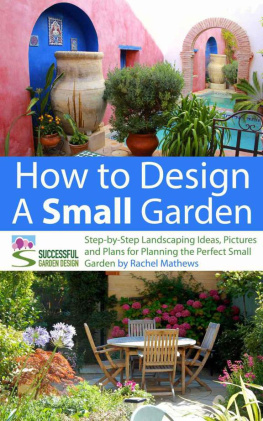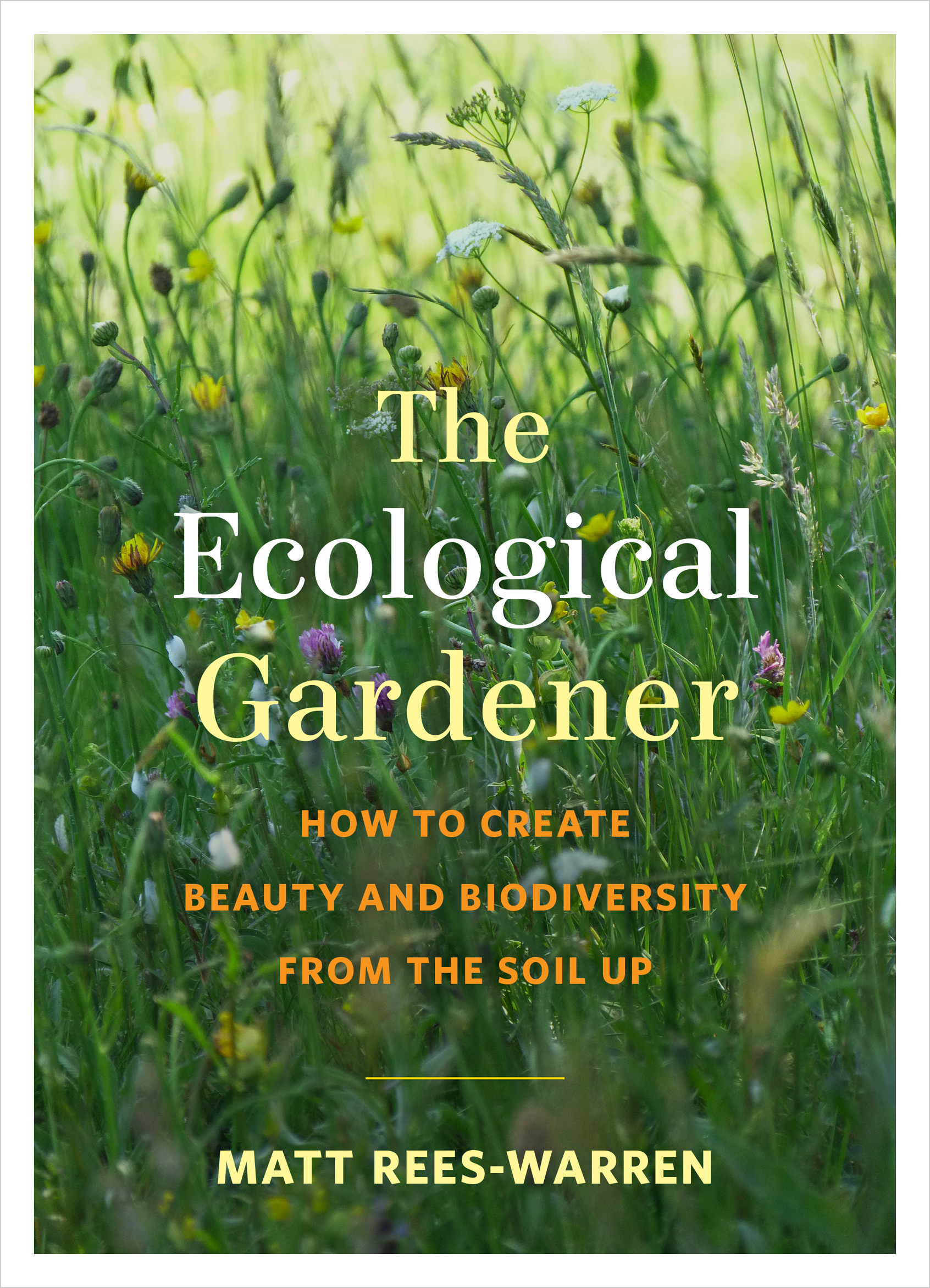Contents
Guide
Pagebreaks of the print version
Praise for The Ecological Gardener
Engaging and quirky; full of ideas and inspiration for garden projects that youll be itching to try for yourself.
DAVE GOULSON, author of The Garden Jungle
Finally, a book for UK gardeners who recognise the desperate need to share their gardens with nature. In The Ecological Gardener, Matt Rees-Warren explains why every square inch of planet Earth, including our gardens, has ecological significance, and he tells us exactly how to increase that significance in ways that will benefit us all. Excellent, timely, essential!
DOUGLAS W. TALLAMY, author of Natures Best Hope
Matt Rees-Warren has distilled his experience, observation and passion for the natural world into an incredibly informative narrative, with practical examples to help us tread lightly on the land. Gardens are for people, but in our endeavour to create beauty, we forget that our space is shared with cohabitants and time. Matt takes us through the garden with an ecological lens just what we need to view a future that is in harmony with nature itself.
ARIT ANDERSON, garden designer, chartered member of The Landscape Institute
Gardening for nature shouldnt be a radical act, but it takes courage to trade power tools and pesticides for hand tools and native plants. The Ecological Gardener helps you brave the rewilding of your own patch through practical, inspirational advice for growing lightly on the land. With Matt Rees-Warren and the natural world as your guides, you can welcome all your wild neighbors, from slugs to the newts who eat them, to your life-sustaining space.
NANCY LAWSON, author of The Humane Gardener
Gardening fads and styles come and go, from topiaries to green walls to Tropicalisimo. Yet the arc of understanding what a garden is slowly bends to the less controlled and naturally friendly. As our understanding of the connectedness and mostly concealed weave and warp of life entire gains steam, so too does our desire to fully embrace the whole. Within this context, Matt Rees-Warren does an admirable job in explaining the objectives while providing the garden-maker a satisfyingly readable map from which to find ones personal paradise that welcomes the natural world into our own backyard.
DANIEL J. HINKLEY, author of Windcliff and The Explorers Garden
The Ecological Gardener
HOW TO CREATE BEAUTY AND BIODIVERSITY FROM THE SOIL UP

MATT REES-WARREN
Chelsea Green Publishing
White River Junction, Vermont
London, UK
Copyright 2021 by Matt Rees-Warren.
All rights reserved.
Unless otherwise noted, all photographs copyright 2021 by Matt Rees-Warren.
No part of this book may be transmitted or reproduced in any form by any means without permission in writing from the publisher.
Project Manager: Natalie T. Jones
Commissioning Editor: Jonathan Rae
Developmental Editor: Michael Metivier
Copy Editor: Lisa Morris
Proofreader: Anne Sheasby
Indexer: Shana Milkie
Designer: Melissa Jacobson
Printed in the United Kingdom.
First printing March 2021.
10 9 8 7 6 5 4 3 2 121 22 23 24 25
Library of Congress Cataloging-in-Publication Data
Names: Rees-Warren, Matt, author.
Title: The ecological gardener : how to create beauty and biodiversity from the soil up / Matt Rees-Warren.
Description: White River Junction, VT : Chelsea Green Publishing, 2021. | Includes bibliographical references and index.
Identifiers: LCCN 2020055948 (print) | LCCN 2020055949 (ebook) | ISBN 9781645020073 (paperback) | ISBN 9781645020080 (ebook)
Subjects: LCSH: Organic gardening. | GardeningEnvironmental aspects.
Classification: LCC SB453.5 .R42 2021 (print) | LCC SB453.5 (ebook) | DDC 635/.0484dc23
LC record available at https://lccn.loc.gov/2020055948
LC ebook record available at https://lccn.loc.gov/2020055949
Chelsea Green Publishing
85 North Main Street, Suite 120
White River Junction, Vermont USA
Somerset House
London, UK
www.chelseagreen.com
For my wife and daughters
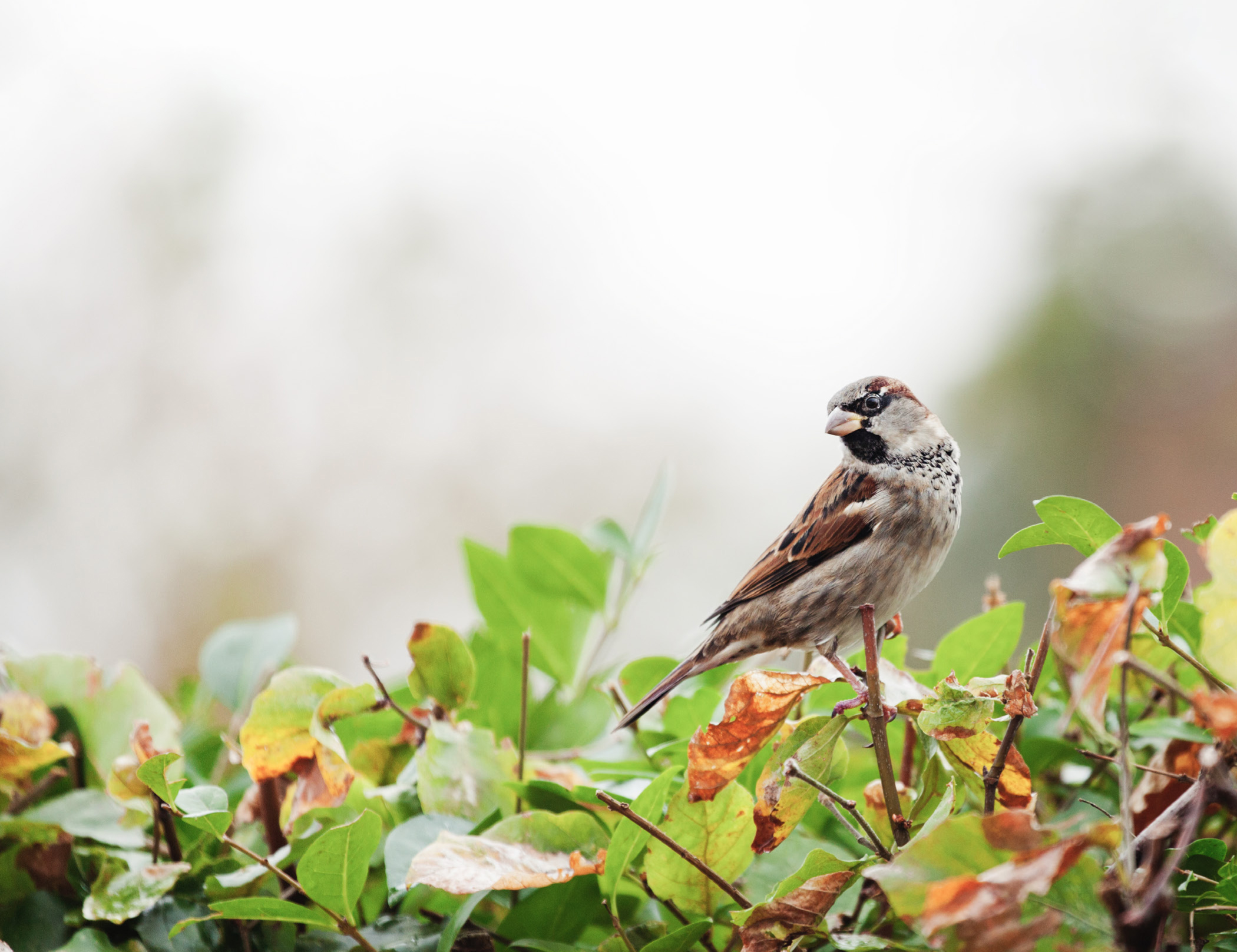
CONTENTS
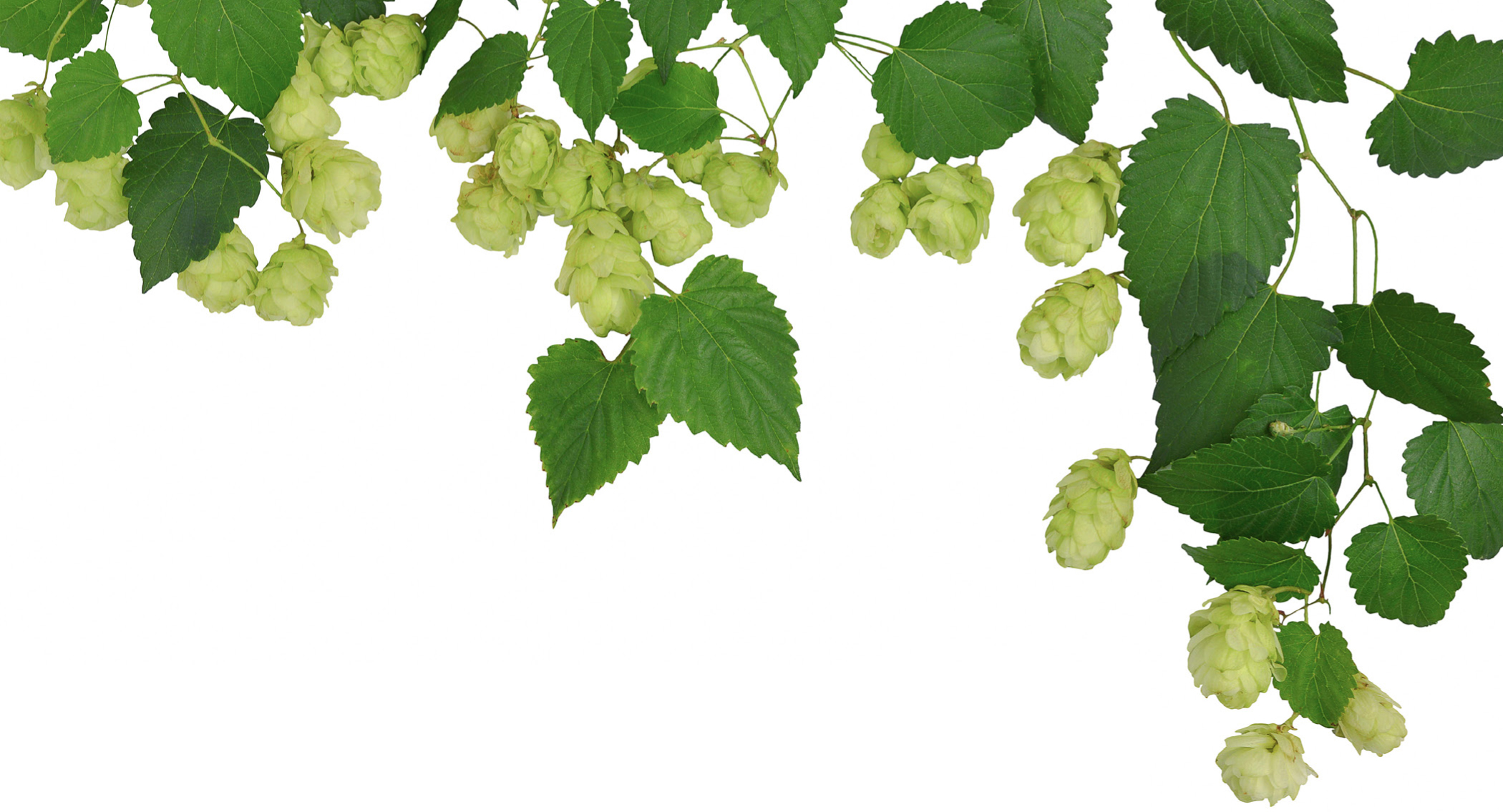
Over the many years Ive worked in gardens, Ive worn many hats both literal and figurative! Ive broken ground in the coldest depths of a UK winter, and studied the karri tree in the blistering heat of the Western Australian bush. Ive led vast redesigning projects in the public realm and spent many hours propagating seedlings in dilapidated greenhouses of quiet country estates. Labels and titles mean little to me, but Ive been given many: landscaper, plant buyer, gardener, horticulturist, student of botany, designer, head gardener, nursery manager, veg grower and garden writer. I spend my days in the muck and the flowers, with all the trials and tribulations and joys and satisfaction that go with a weathered life. Gardening is in my bones; not only has it provided for me and my family, but it has also taught me more than I ever thought Id gain from a simple and honest occupation.
When you work with your hands in the soil and the sun on your back, you take in the natural world at close quarters, in an immersive way. You go where others do not, and see what they do not see. You can glimpse wildlife which is often illusive more readily and in more detail, understand soil health with a greater depth of wisdom, and more closely observe the way water moves and collects through the ground. There is an almost overwhelming amount of knowledge to glean from nature. The study of plants alone can occupy many years of a gardeners lifetime.
For me, however, this tactile, tangible closeness with nature has also revealed gardens as bellwethers of a changing landscape. I have seen first-hand the damaging effects non-organic lawn fertilisation can have on the watercourses of a garden, and noticed the lifelessness of a relentlessly cultivated flower. Ive witnessed the folly of rigidly aesthetical design unfold and been privy to the exhaustive lengths of control we seek to bring over natures wild habit, all while the seasons and prevailing climate have changed and become more dynamic and extreme, with climate records tumbling by the year, not by the decade.
As a civilisation we have imprinted on the order of the natural world so dramatically as to have changed its composition beyond what is sustainable, and we now find ourselves at a crossroads where, if we do not choose a new path forward, we face a future of even greater extremes and disharmony. And yet we hold within our grasp the possibility of readdress and regeneration, the chance to reset the clock for ourselves and for many generations to come.
Reimagining how we garden may seem like a small way to help mitigate our ecological crisis, but its an important one, and it has the ability to make a substantial difference. Gardens are natural spaces after all, the great green lungs of every nation; individual and idiosyncratic but together fundamental to their local and wider ecosystems. How we guide them will be the difference between a future in which they play a key role in restoring natures health, or one in which we continue our parsimonious approach to natures needs. While there needs to be a collective changing of the guard, from the community scale to the planetary, small acorns make mighty oaks, and its also what we do as individual gardeners, today and tomorrow, that matters.


